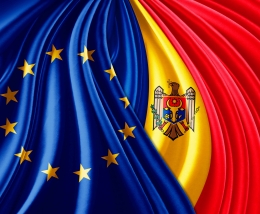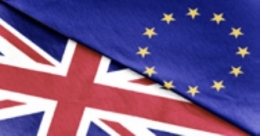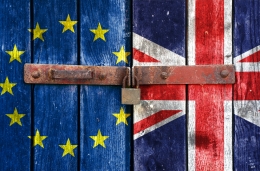European Economic
and Social Committee
Europa
In Europa unterhält der EWSA Beziehungen zu den Sozialpartnern und zu zivilgesellschaftlichen Organisationen im Westbalkan, in der östlichen Nachbarschaft der EU, in den EWR/EFTA-Staaten Island, Liechtenstein und Norwegen sowie im Vereinigten Königreich.
Der Begleitausschuss Westbalkan – ein ständiges Arbeitsorgan des EWSA – ist das wichtigste Instrument zur Koordinierung der Aktivitäten des EWSA in dieser Region. Im Rahmen seiner Tätigkeit veranstaltet der Begleitausschuss alle zwei Jahre ein Forum der Zivilgesellschaft des Westbalkans.
Auch auf bilateraler Ebene arbeitet der EWSA mit den Ländern des Westbalkans, mit denen Beitrittsverhandlungen aufgenommen wurden, sowie mit der Türkei zusammen. Diese Zusammenarbeit erfolgt im Rahmen spezialisierter Gremien, die auf der Grundlage von Assoziierungsabkommen zwischen dem jeweiligen Land und der EU eingerichtet wurden. Über gemischte beratende Ausschüsse sollen die Sozialpartner und zivilgesellschaftlichen Organisationen in die Überwachung der Heranführungs- und Reformprozesse im Hinblick auf eine mögliche EU-Mitgliedschaft einbezogen werden. Jedes dieser Gremien setzt sich zu gleichen Teilen aus Mitgliedern des EWSA und des Partnerlandes zusammen und tritt für gewöhnlich ein- oder zweimal pro Jahr zusammen.
Der EWSA hat darüber hinaus einen Begleitausschuss Östliche Nachbarstaaten eingerichtet – ein internes Gremium für die Beziehungen zur Zivilgesellschaft in den Ländern der Region, d. h. Armenien, Aserbaidschan, Belarus, Georgien, Republik Moldau und Ukraine.
Die wichtigsten Instrumente für eine Zusammenarbeit mit Armenien, Georgien, Moldau und der Ukraine sind die Plattformen der Zivilgesellschaft, die es zivilgesellschaftlichen Organisationen sowohl der EU als auch des Partnerlands ermöglichen, die Umsetzung des EU-Abkommens mit dem jeweiligen Land zu überwachen und gegenüber den zuständigen Behörden Empfehlungen auszusprechen. Darüber hinaus wurden der Ukraine und Moldau 2022 der Status von Kandidatenländern zuerkannt.
Mit Blick auf Belarus und Russland werden gegenwärtig Beziehungen zu den verbleibenden unabhängigen Organisationen der Zivilgesellschaft aufgebaut, von denen ein Großteil ihren Sitz in die EU verlegt hat. Der EWSA hält es zum gegenwärtigen Zeitpunkt und bis zur künftigen Verbesserung der Rahmenbedingungen für wichtig, den Dialog nicht abreißen zu lassen.
Der Europäische Wirtschaftsraum (EWR) bindet die EU-Mitgliedstaaten und die drei EWR-EFTA-Staaten (Island, Liechtenstein und Norwegen) in einen Binnenmarkt mit freiem Warenverkehr, Personenfreizügigkeit, Dienstleistungsfreiheit und freiem Zahlungs- und Kapitalverkehr ein. Der EWSA stellt den einen Teil des Beratenden EWR-Ausschusses, in dem mit Vertretern der Sozialpartner aus den EWR-EFTA-Staaten Fragen von gemeinsamem Interesse erörtert werden.
Schließlich hat der EWSA einen Begleitausschuss EU-Vereinigtes Königreich eingesetzt, der für die Beobachtung der Beziehungen zwischen der EU und dem Vereinigten Königreich Großbritannien und Nordirland aus Sicht der Zivilgesellschaft zuständig ist. Der Schwerpunkt der Arbeit des Begleitausschusses liegt insbesondere auf der Umsetzung des Austrittsabkommens zwischen der EU und dem Vereinigten Königreich und des Protokolls zu Irland/Nordirland. Diesbezüglich steht er in ständigem Austausch mit zivilgesellschaftlichen Organisationen aus dem Vereinigten Königreich. Außerdem konzentriert er sich auf die Umsetzung des Handels- und Kooperationsabkommens zwischen der EU und dem Vereinigten Königreich, bei dem der Begleitausschuss EU-Vereinigtes Königreich im Rahmen des Handels- und Kooperationsabkommens mit der Internen Beratungsgruppe zusammenarbeitet.





